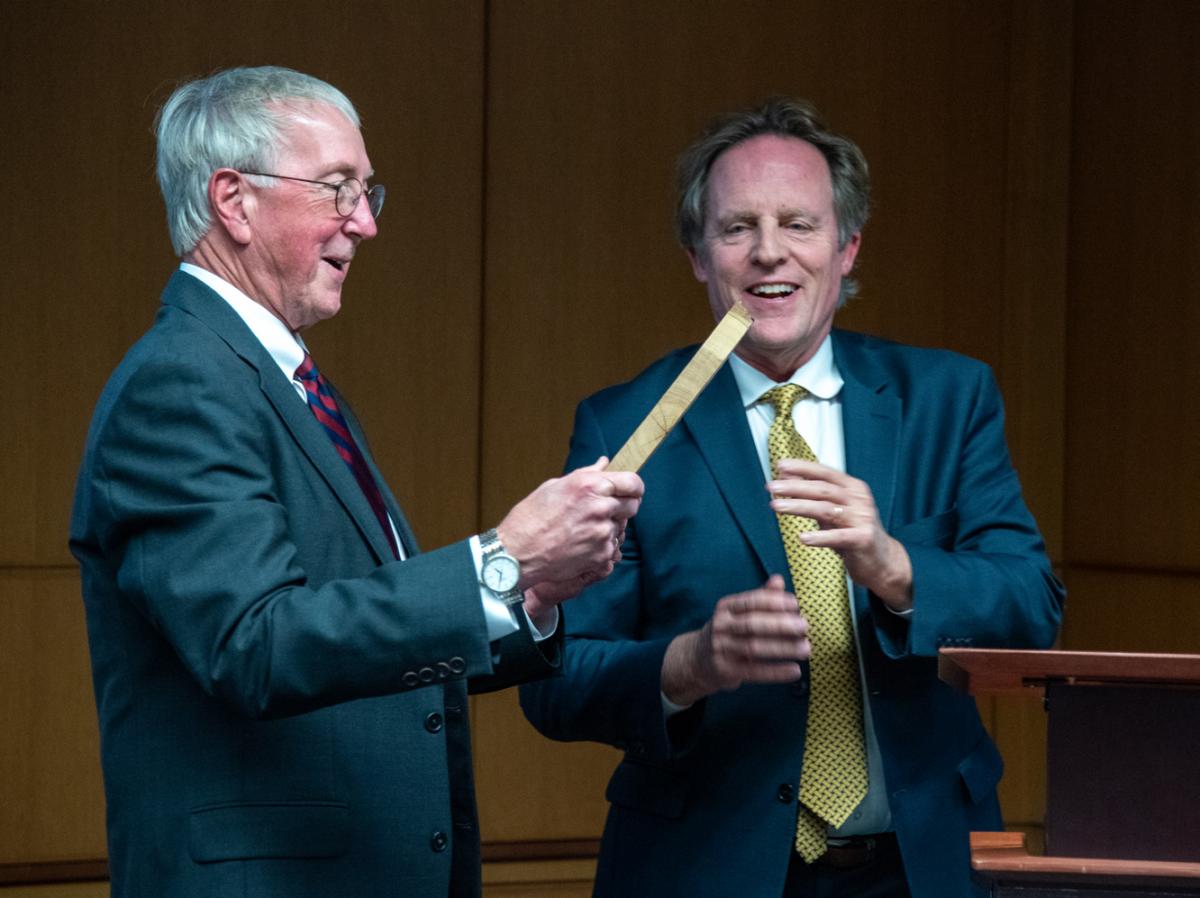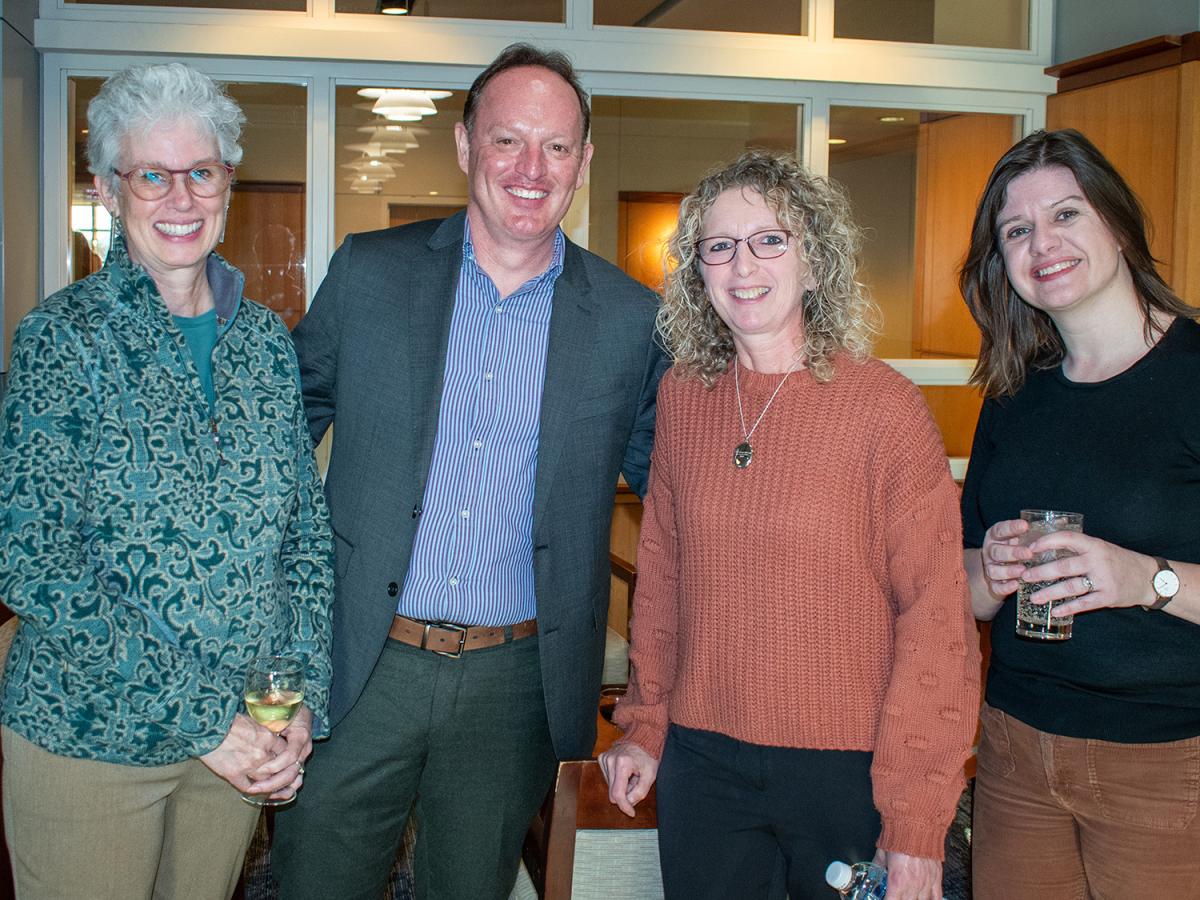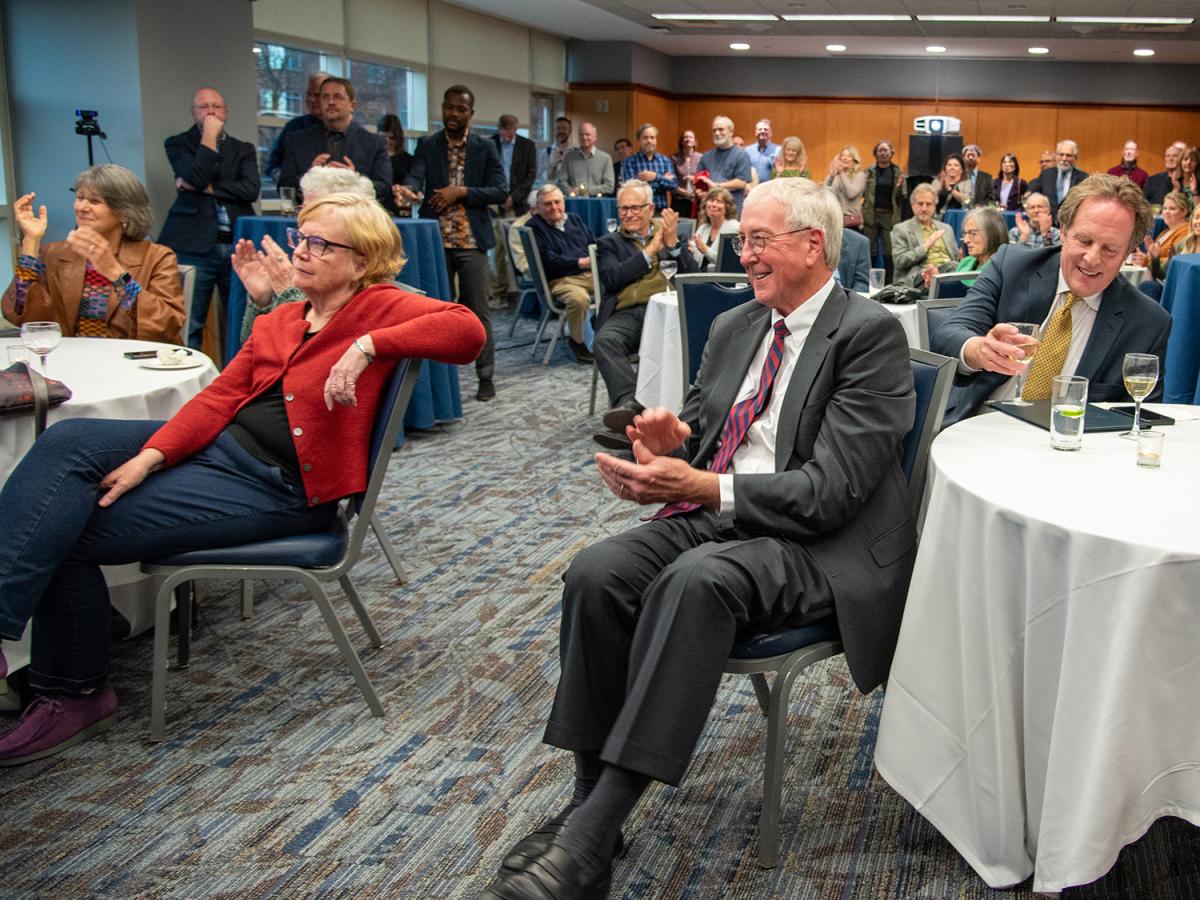 The College of Earth and Mineral Sciences and the Department of Geography recently hosted a celebration to honor William Easterling’s legacy of leadership to the University. More than 100 faculty, staff, and former colleagues and students gathered on Nov. 9 at the Penn Stater Hotel and Conference Center to pay tribute to his extraordinary career and accomplishments.
The College of Earth and Mineral Sciences and the Department of Geography recently hosted a celebration to honor William Easterling’s legacy of leadership to the University. More than 100 faculty, staff, and former colleagues and students gathered on Nov. 9 at the Penn Stater Hotel and Conference Center to pay tribute to his extraordinary career and accomplishments.
Easterling served the University for 26 years. He joined the Penn State faculty in 1997 as an associate professor of geography and earth system science. In 2001, he became the founding director of the Institutes of Energy and the Environment, the focal point for interdisciplinary research in energy and environmental science and engineering at Penn State.
In 2007, he was appointed dean of the College of Earth and Mineral Sciences and held that post until 2017 when he was appointed assistant director of the National Science Foundation in charge of the Geosciences Directorate, which supports fundamental research spanning the atmospheric, earth, ocean, and polar sciences.
“Bill has had so many accomplishments it is hard to focus on any one success,” said Eva Pell, senior vice president for research and dean of the Graduate School emerita, and professor emerita of plant pathology. “In my interactions with him, both when he was an institute director and when he was dean of the College of Earth and Mineral Sciences, what I found so compelling about his leadership was his ability to see the big picture. Bill grasped the key issues facing our environment, and that, of course, included our management of energy needs. He understood that to be successful you needed to bring to the table a range of expertise, and then knit together a broad array of talent that would go beyond a single field, department or college. His ability to articulate those needs and convince competing actors to work together, defined so much that Bill Easterling was able to accomplish.”
After serving at the NSF for four years, Easterling resumed his appointment as professor of geography and earth system science on June 1, 2021. He retired earlier this year and is now professor emeritus of geography and dean emeritus of the College of Earth and Mineral Sciences.
 “I think, what I’ll miss more than anything and a thread that went through my years as a college administrator, and as a science administrator for the NSF as well, it is working with really smart, dedicated, interesting colleagues and helping create opportunities for them,” Easterling said. “At the end of the day, the most rewarding part of your time as a leader is creating opportunities.”
“I think, what I’ll miss more than anything and a thread that went through my years as a college administrator, and as a science administrator for the NSF as well, it is working with really smart, dedicated, interesting colleagues and helping create opportunities for them,” Easterling said. “At the end of the day, the most rewarding part of your time as a leader is creating opportunities.”
Easterling trained as an economic geographer and climatologist and is an internationally recognized expert on how climate change likely will affect the Earth’s food supply. As dean of the college, Easterling strengthened the college’s position as a world leader in the earth, material and energy sciences and engineering. He led strategic planning for research initiatives focusing on the food-energy-water nexus, clean carbon energy, additive manufacturing, big data challenges in forecasting, and risk and uncertainty in environmental decisions.
“Bill has been especially effective as an ambassador for Penn State and the College of Earth and Mineral Sciences on the national and international scene, as IEE director, EMS dean, and assistant director for the Geosciences Directorate at NSF,” said Lee Kump, John Leone Dean in the College of Earth and Mineral Sciences. “That representation continues through his retirement as a dean emeritus as he facilitates connections with his vast STEM leadership network, for me and for others in academic leadership positions.”
 As the founding director of IEE during a period in which Penn State rose from 25th to 13th in federal environmental research expenditures according to NSF, Easterling directed the coordination of interdisciplinary environmental and energy research, teaching and outreach across eight colleges of the University. He facilitated the allocation of 30 new faculty lines in targeted environmental priority areas. IEE was expanded in November 2006 to include all energy sciences, engineering, and policy. The University augmented the resources of IEE to add 24 new faculty lines and associated program funds for energy.
As the founding director of IEE during a period in which Penn State rose from 25th to 13th in federal environmental research expenditures according to NSF, Easterling directed the coordination of interdisciplinary environmental and energy research, teaching and outreach across eight colleges of the University. He facilitated the allocation of 30 new faculty lines in targeted environmental priority areas. IEE was expanded in November 2006 to include all energy sciences, engineering, and policy. The University augmented the resources of IEE to add 24 new faculty lines and associated program funds for energy.
“Working with scientists has been a joy throughout my career,” Easterling said. “I think it’s really special to be able to help people whose jobs are to create new knowledge that we’ve never had before. When I look back on my career, I think one of my greatest contributions was in the quality of faculty we hired to the University.”

